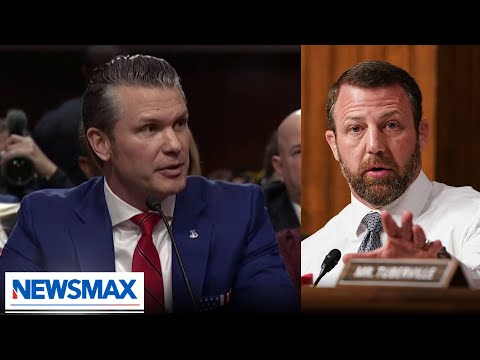In the world of national defense and political theater, few things stir up a hornet’s nest quite like discussions of qualifications for key positions, particularly the role of Secretary of Defense. Recently, a vigorous debate erupted among senators, where one particularly fiery discussion centered on the credentials of a nominee for the Secretary of Defense position. While some senators boldly critiqued the qualifications of the nominee, others couldn’t help but point out the sheer irony of their criticisms. After all, the qualifications for senators themselves can seem rather flimsy if one were to judge by the same standard.
One senator took to the stand and raised an eyebrow at the qualifications required to be Secretary of Defense, informally invoking the age-old saying that “one man’s trash is another man’s treasure.” It turns out, the list of qualifications for this critical role is not so long. Generally, the secretary must be a civilian, and if there has been military service, there’s the small detail of needing to be retired for at least seven years. That’s it! The senator made a point to highlight how this lack of stringent qualification standards might even apply to those critiquing the nominee. Senators, it seems, become senators based on age, residency, and a sprinkle of electoral luck.
Furthermore, the discussion took a sharp turn as the senator recalled prior contradictions within the system. The group-chosen Secretary of Defense, for instance, recently required a waiver to serve, despite previous affiliations with the military-industrial complex. A nod to the Democrats’ control of the narrative in these debates was not lost. It begs the question: do the rules apply equally, or is there a preferential treatment by party affiliation?
The senator didn’t stop there. He also threw a light-hearted jab at his colleagues, pointing to their own foibles. He inquired rhetorically about how many senators had stumbled into voting sessions under the influence of a little too much wine? Or perhaps how many had faced personal crises such as divorces? Despite the light humor, the underlying seriousness of accountability was palpable. After all, if personal mistakes disqualify a nominee, shouldn’t we consider the character of those voicing such judgments?
But amidst the political squabbles, there was a heartwarming moment when the senator acknowledged the support of loved ones. He shared a touching tribute to his wife, revealing that her love and forgiveness had given him the strength to change for the better. Whether it was love for family or belief in second chances, there was a clear message: even those in high political positions are still human, bound to make mistakes and learn from them.
In the midst of the back-and-forth banter and critiques, one thing was clear: the fight for national defense and effective leadership is often muddied by the very human elements of pride, arrogance, and yes—even humor. This spirited exchange not only highlights the complexities of political qualifications but also poses an underlying question: can any of us truly rise above the mistakes we have made? The answer, it seems, is that it takes a village—or perhaps a good spouse—to remind us of our worth, flaws included. In this game of high stakes and often higher egos, perhaps a little humility, understanding, and humor wouldn’t hurt those in power. After all, it’s a wild world out there!



